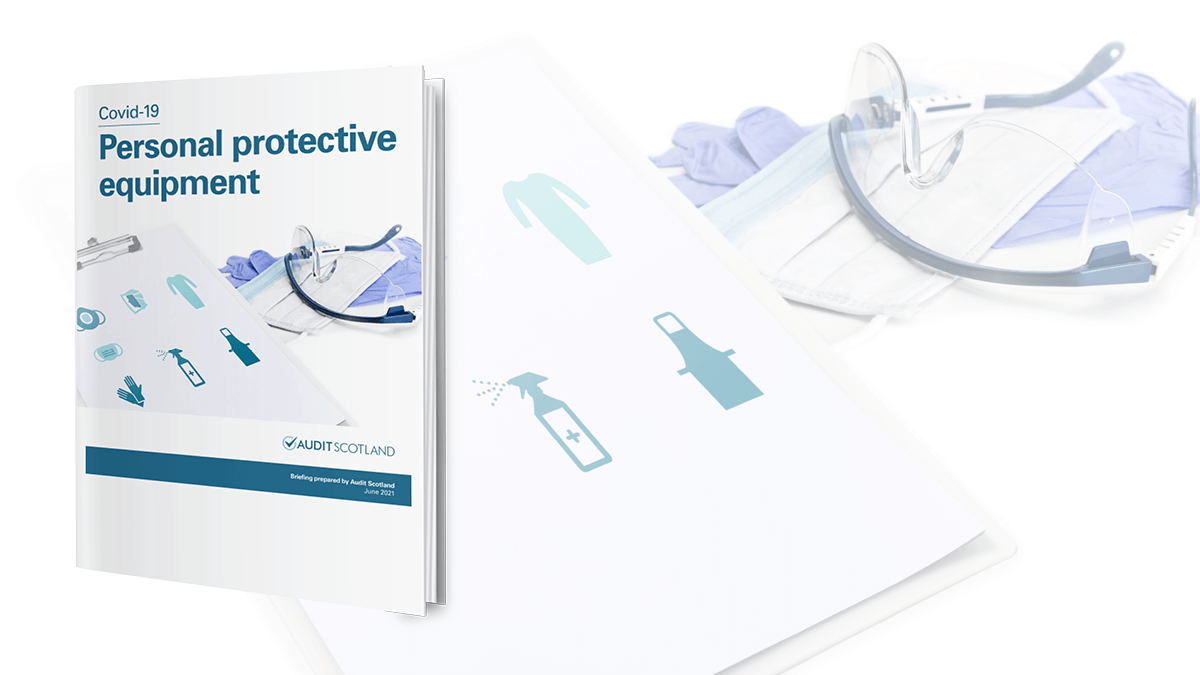Longer-term approach needed to PPE planning

The rise in PPE prices at the start of the Covid-19 pandemic increased costs for the body that provides support services to the NHS by over £37 million.
An Audit Scotland briefing published today looks at how the Scottish Government and NHS National Services Scotland put in place arrangements to procure, store and distribute PPE to health and social care settings. This was at a time when global supply chains collapsed and the market for PPE was complex and volatile.
On procurement, the briefing notes that NHS NSS awarded new PPE contracts using emergency procurement procedures. This included 78 contracts worth £340 million awarded to companies providing PPE between March 2020 and June 2021. Twenty-nine of these contracts, worth £98 million, were awarded to new suppliers with no competition. NHS NSS also awarded contracts to Scottish manufacturers to establish a more resilient supply chain.
The Auditor General for Scotland will be reporting further on PPE value for money following the completion of the 2020/21 audit of NHS NSS. Other key issues outlined in the briefing include how:
- The price of PPE doubled in 2020. Had NHS NSS been able to buy PPE at 2019 prices, it would have spent £37.4 million less on PPE stock in the first five months of the pandemic.
- NHS NSS distributed 1.1 billion of items of PPE between March 2020 and April 2021.
- Centrally held PPE stocks were very low at points during April 2020.
- The Scottish Government did not fully implement recommendations from the pandemic preparedness exercises and could have done more to ensure access to PPE and training in how to use it.
Stephen Boyle, Auditor General for Scotland, said:
The Scottish Government and NHS National Services Scotland worked well together under extremely challenging circumstances to set up new arrangements for the supply and distribution of PPE to health and social care settings.
The challenge now will be in developing a longer-term approach to PPE supply and distribution that includes both business as usual needs as well as preparing for future pandemics.





